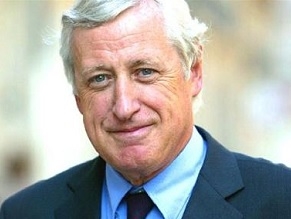|
World Jewish News

Pierre Vimont, Secretary General of the European External Action Service (EEAS), the EU’s diplomatic service and Christian Berger, EEAS director for North Africa and the Middle East, were scheduled to meet Rafi Barak and Ran Curiel, respectively Director-
|
Senior Palestinian official: EU guidelines part of a deal that led the PA resume talks with Israel
10.09.2013, Israel A senior Palestinian official on Monday revealed that the new European Union guidelines prohibiting Israeli entities beyond the Green Line from receiving EU funding was part of a deal that led the Palestinian Authority to resume talks with Israel.
"The Europeans encouraged us to enter U.S.-brokered talks by publishing, before our decision, their new directions against settlement activities, and encouraged us by doing so," PLO negotiator Nabil Shaat was reported a saying.
He made the revelations as he accused the United States of pressuring the EU to postpone the implementation of the guidelines so as to appease Israel.
"My information is that Secretary of State John Kerry is trying to persuade the Europeans to delay the implementation of their new guidelines," Shaath said.
During a meeting with EU Foreign Ministers on Saturday in Vilnus, Kerry called on the Europeans to consider postponing the implementation of the EU guidelines in order not to hamper current Israeli-Palestinian peace talks.
According to a senior US State Department official, Kerry asked that the EU “find a way to embrace the negotiators and encourage them to move forward, rather than, as it were metaphorically, bang them over the head.”
"There was strong support for his efforts and an openness to considering his requests," an unnamed State Department official said.
EU foreign policy chief, who met with Kerry in Vilnius, said that the guidelines are simply “putting down on paper what is currently the EU’s position.” However, she did indicate some flexibility, saying “We will be sending a team to Israel on Monday to make sure that in the implementation, we are doing so sensitively.”
Ashton emphasized “We of course want to continue to have a strong relationship with Israel.”
Shaat’s statement came as a delegation of two senior EU diplomats are meeting on Tuesday in Jerusalem with Israeli foreign ministry high officials the implementation of the controversial guidelines which could threaten cooperation between Israel and the EU on research and development.
The two EU diplomats, Pierre Vimont, Secretary General of the European External Action Service (EEAS), the EU’s diplomatic service and Christian Berger, EEAS director for North Africa and the Middle East, are scheduled to meet in Jerusalem with Rafi Barak and Ran Curiel, respectively Director-General and Deputy Director-General of Israel’s foreign ministry.
French Foreign Minister Laurent Fabius recently admitted that the European Union’s guidelines may have created a new legal situation that EU leaders had not meant to create.
During a visit in Jerusalem, he said that the EU could consider somewhat changing the boycotting guidelines.
"We need to check whether the guidelines created things that were unintended,” he said, adding that the new guidelines are not intended to change and influence the situation but rather "draw lessons from things that happened in the past."
Drafted in July by the European Commission, the new guidelines state that the EU will no longer be party to any economic, social or academic ventures involving Israeli institutions based in the West Bank (Judea and Samaria), eastern Jerusalem or the Golan Heights.
The new guidelines also stipulate that the agreement between Israel and the EU should explicitly state that it is not applicable to the territories captured in 1967, which could contradict the status of some of these areas under Israeli law.
The new directive has thrown Israel’s participation in the EU’s flagship Horizon 2020 research and innovation programme into doubt. Horizon 2020 aims to create jobs and fuel economic growth and Israel is the only non-EU country to have been asked to fully participate in the programme.
by: Yossi Lempkowicz
EJP
|
|
